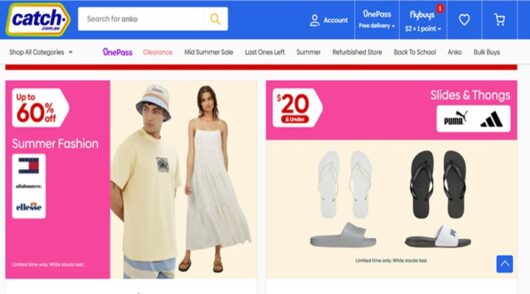Earlier this month, Australian circular home goods brand Zero Co launched an ambitious new project called the ‘100-year cleanup’, which sets out to fund large-scale rubbish removal over the next century. The plan, according to Zero Co founder and chief executive Mike Smith, is to raise A$1 million every year – from sponsors, customers, and industry peers – which will fund the removal of plastic to the scale of 15 million water bottles annually. It has currently raised just over $300,000.
00.
Zero Co kicked off the initiative by flying its team to the Egyptian desert, where, in collaboration with local clean-up organisations, it emptied the Nile River of more than 18,000kgs of plastic waste. That waste was then fashioned into the world’s largest waste pyramid at over 10m high, where Smith spent three nights camping to raise awareness and interest in the campaign.
“Over the past two years we’ve been doing a whole bunch of clean-ups around Australia and overseas – we’ve done about 25 now,” Smith told Inside Retail.
“I think we’ve just realised that the problem is getting worse, not better. We’re not going to solve this problem alone, and we’re not going to solve it in our lifetime.
“It’s going to take an intergenerational effort, and people from all walks of life doing their little bit.”
The mission doesn’t end at cleaning the Nile. Over the next year, Zero Co has committed to similar endeavours cleaning up the Himalayan Mountains and the oceans.
“[Next], we’re going to do a simultaneous underwater clean-up in the world’s seven oceans, and have scuba divers live streaming their dives online [and] all over the world,” Smith said.
“The goal is to build a full-time clean-up crew in Australia and Indonesia [which will work on] cleaning oceans, beaches and rivers 24 hours a day, seven days a week, 365 days a year.
“But we’ve got to raise the $1 million to get to that point.”
Black Friday, recycled
With one of the world’s biggest sales events, Cyber Weekend, having just ended, Zero Co stood firm with other ethically and sustainably minded businesses in shutting down its operations for Black Friday.
It urged customers to donate to the cause, where customers can chip in to the clean-up mission by making a $20, $50, or $100 donation, which will see 300, 750, and 1500 bottles removed from the environment respectively.
“Every time I come back from a [clean-up] trip, two things happen: One, I get a bit depressed about the state of the world, because when you set it first-hand, it’s actually getting worse,” Smith said.
“The second thing is that I get energised, because I see the impact the stuff we’re doing has on people. I always get super inspired when I come back, to try to think about new ways to communicate about the waste problem, and help more people stop living a wasteful lifestyle.
“Coming back to Australia and seeing my inbox filled with Black Friday deals is mind-boggling. There’s so many companies out there that are more interested in selling shit than they are in taking care of the planet – that’s the brutal reality.”
In addition, Smith said learning recently that he will be a father has bolstered his drive to leave behind a better world.
Black Friday, and the holiday shopping period more generally, has come under pressure over concerns about the impact rampant shopping can have on the environment.
An Australian-born alternative, Green Friday, officially launched this year, pushing the sale of reusable, ethical and sustainable products.
Zero Co, however, decided not to participate at all.
“We [boycotted] the whole thing, and encouraged people not to buy anything because it sends a signal that rampant consumerism is okay, and it’s totally not.”
A difficult blow
The onset of Black Friday, which has become the unofficial start of the holiday spending period – traditionally retail’s most lucrative event of the year – coincided with the collapse of one of Australia’s biggest single-use plastic recyclers: RedCycle.
While RedCycle has apologised for the situation, and is working with retailers and governments to create alternative arrangements for the plastic it has been storing, Smith said the business isn’t to blame for the situation.
“At the end of the day, they tried to build a solution to a problem, and we need to celebrate that,” Smith said.
“The biggest thing that’s happened is that we’ve had a lot of really big companies latch onto the RedCycle initiative without really understanding the reality of recycling soft plastic.
“The reality is that less than 15 per cent of all plastic we use in Australia gets recycled, and that 15 per cent can only be recycled once or twice before the polymer chain breaks down and it can’t be reused again. It’s not infinitely recyclable.”
Ideas of plastic roads and benches are also missing that point, Smith said, as driving or using those concepts would just release microplastics into and further degrade the environment.
The only way to avoid this, Smith said, is to simply stop making more single-use plastics.
“If you walk into your bathroom and it’s flooded because the tap’s been left on, what’s the first thing you do?” Smith said.
“Do you get a mop to mop up the mess? Or do you turn the tap off?”







